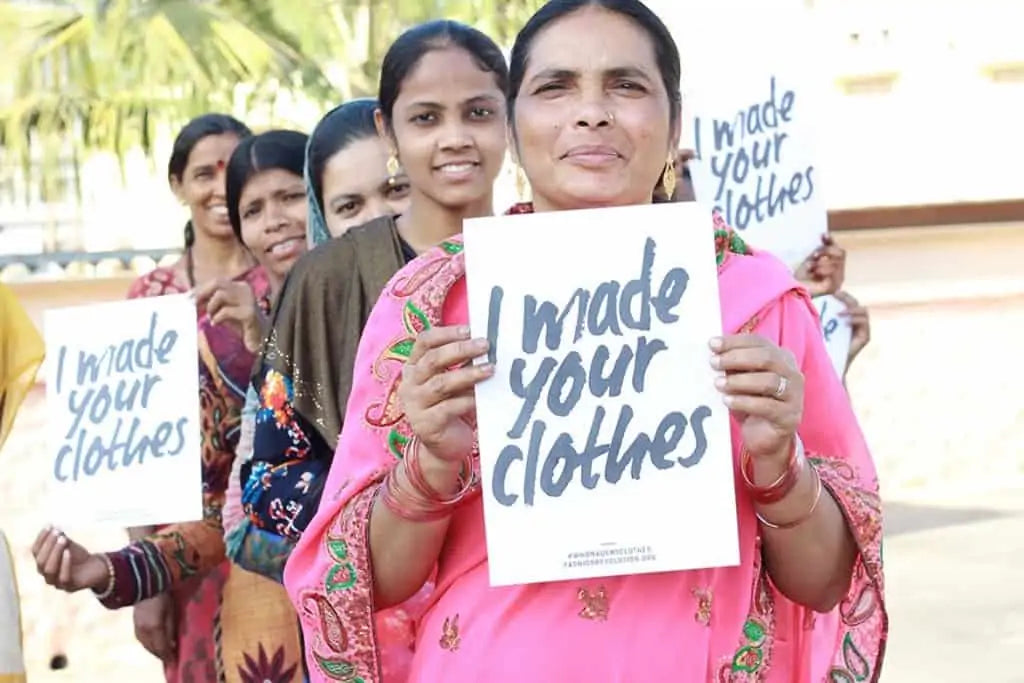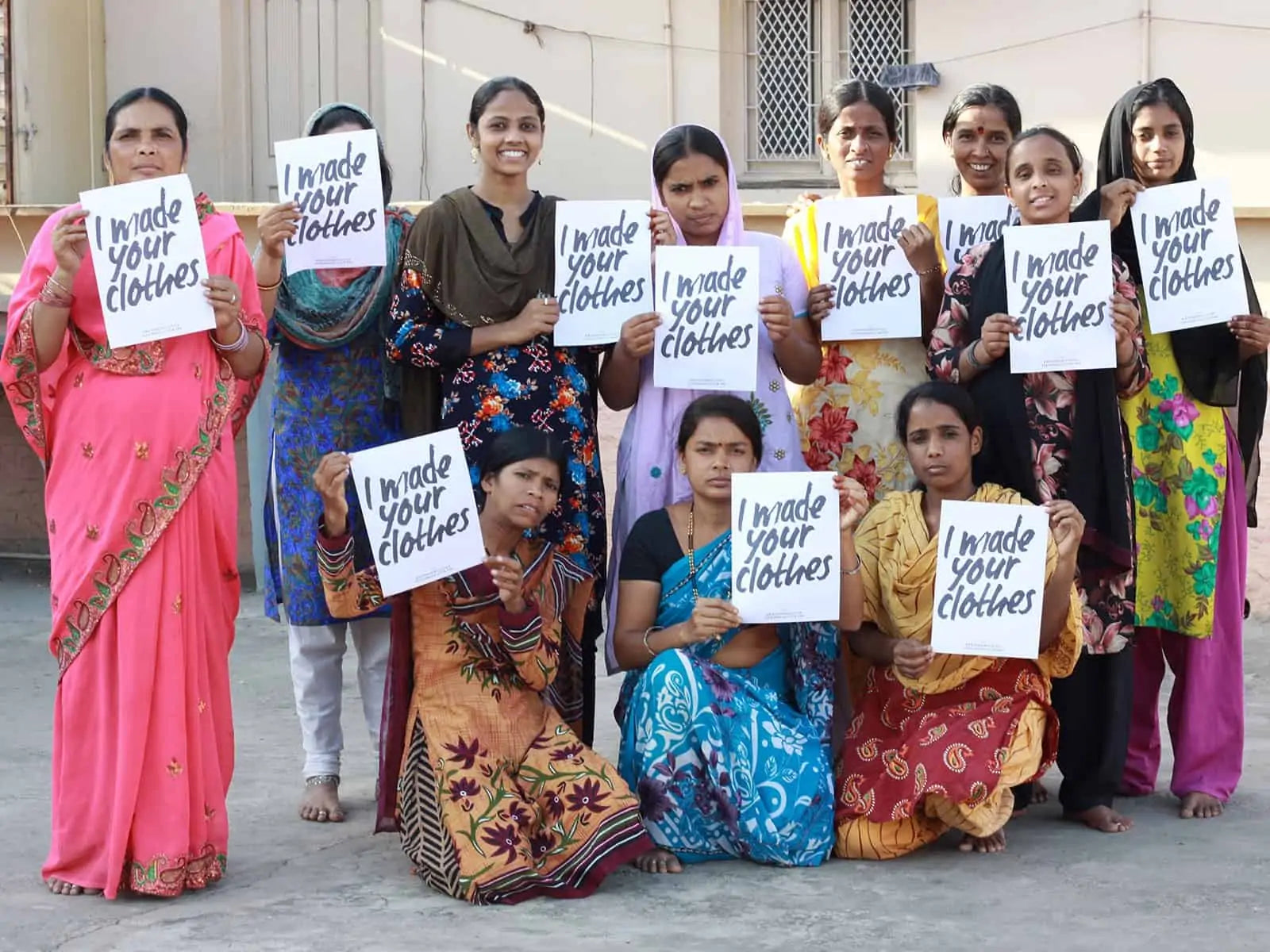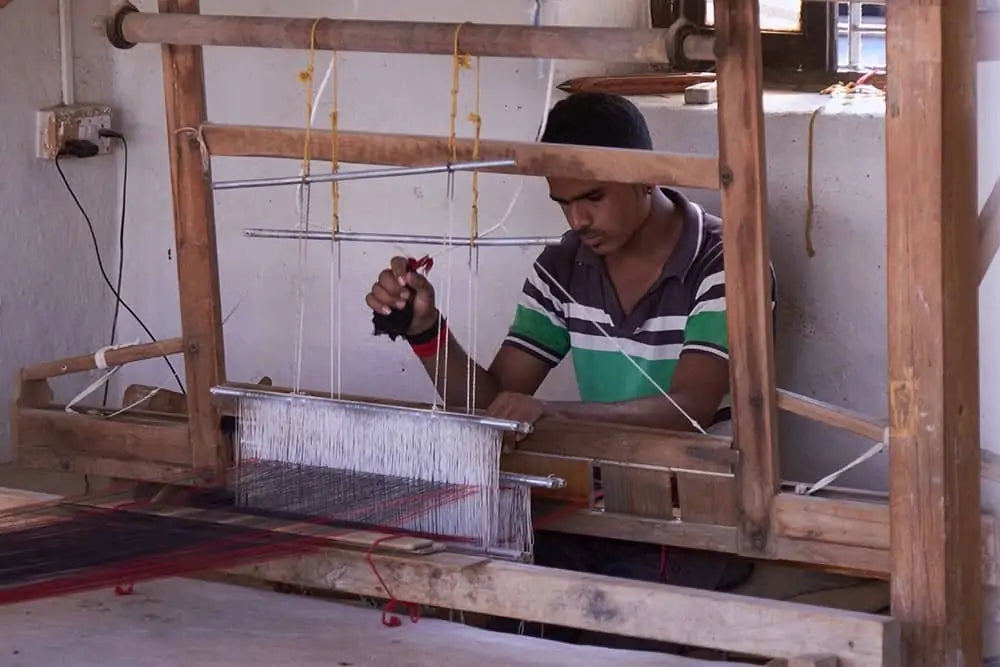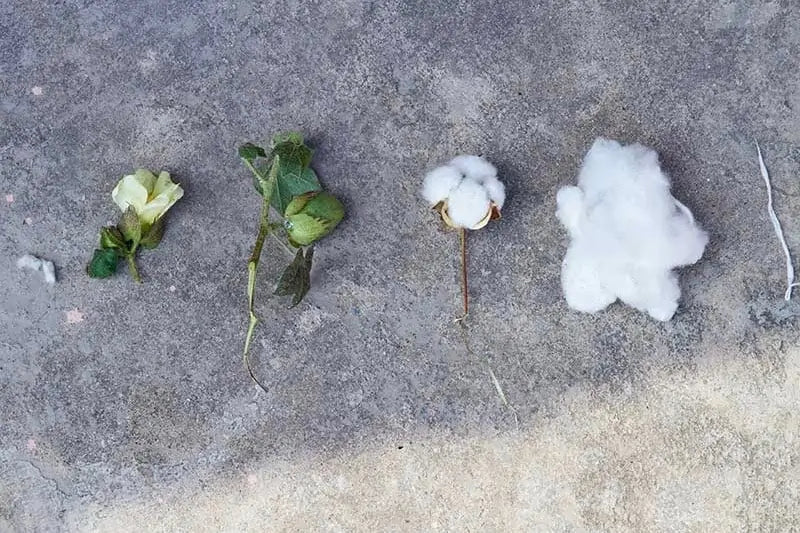who made your clothes? Halima did!

Halima has been with Jyoti – Fair Works from the beginning. She grew up in Kurkunta, a small village an hour and a half from Chittapur by train, but moved aged 18 in order to marry. She had been eagerly studying to become a language teacher (Hindi and Kannada, the local language), but was forced to drop out of school aged 17 as her father thought her only duty in life was to marry. Halima’s Kannada teacher wanted to support her in her goal of becoming a language teacher, but wasn’t able to go against the family’s choice of an arranged marriage.
For the first 12 years of her marriage Halima was only allowed to stay within her own home, or the house of her mother in law. Only when the familial financial situation grew different was she given permission to search for work. Initially she was frightened to leave the house, but now she says that working and being able to finance her children’s education has given her courage.
Halima first found out about Jyoti – Fair Works because her eldest daughter attended tuition at Jyoti Seva Kendra (our partner NGO) every morning before school. During parent-teacher meetings Halima made contact with the nuns and asked them about work opportunities. She met and befriended Jeanine Glöyer who was working with the NGO at the time, and together they came up with the idea of Jyoti – Fair Works. Initially they embellished home textiles with embroidery, but in the seven years since, Jyoti has transformed into a fashion label.

A DAY IN THE LIFE OF HALIMA
6 a.m.
Wake up
6 – 9.45 a.m.
Wash, pray, prepare breakfast
for family and do other
household work like laundry
9.45 a.m.
Make the 15 minute walk to work
10 a.m. – 1 p.m.
Work
1 – 2 p.m.
Lunch
2 – 5 p.m.
Work with tea break at 4 p.m.
5 – 10 p.m.
Shop at the market, make dinner,
eat as a family and watch TV
10 p.m.
Sleep
The opportunity to learn seamstress skills and bring her own ideas to the designs, appeals to Halima. When we asked her what she does for fun, she said that going to work is fun for her as she gets to share good and bad news with the other women and get rid of tension from any problems at home. She likes the garments she makes purely because they appeal to the German customers who guarantee her work. She wouldn’t wear them personally as they would draw too much unwanted attention. She wants consumers to know how much work and care is put into every item, and to not throw away clothes so easily.
Halima hopes for the future are that Jyoti can grow to employ a hundred women so that they can all earn money for their families and their children’s educations. Meanwhile she wants her second daughter to finish her studies and have the option to work once she graduates.



